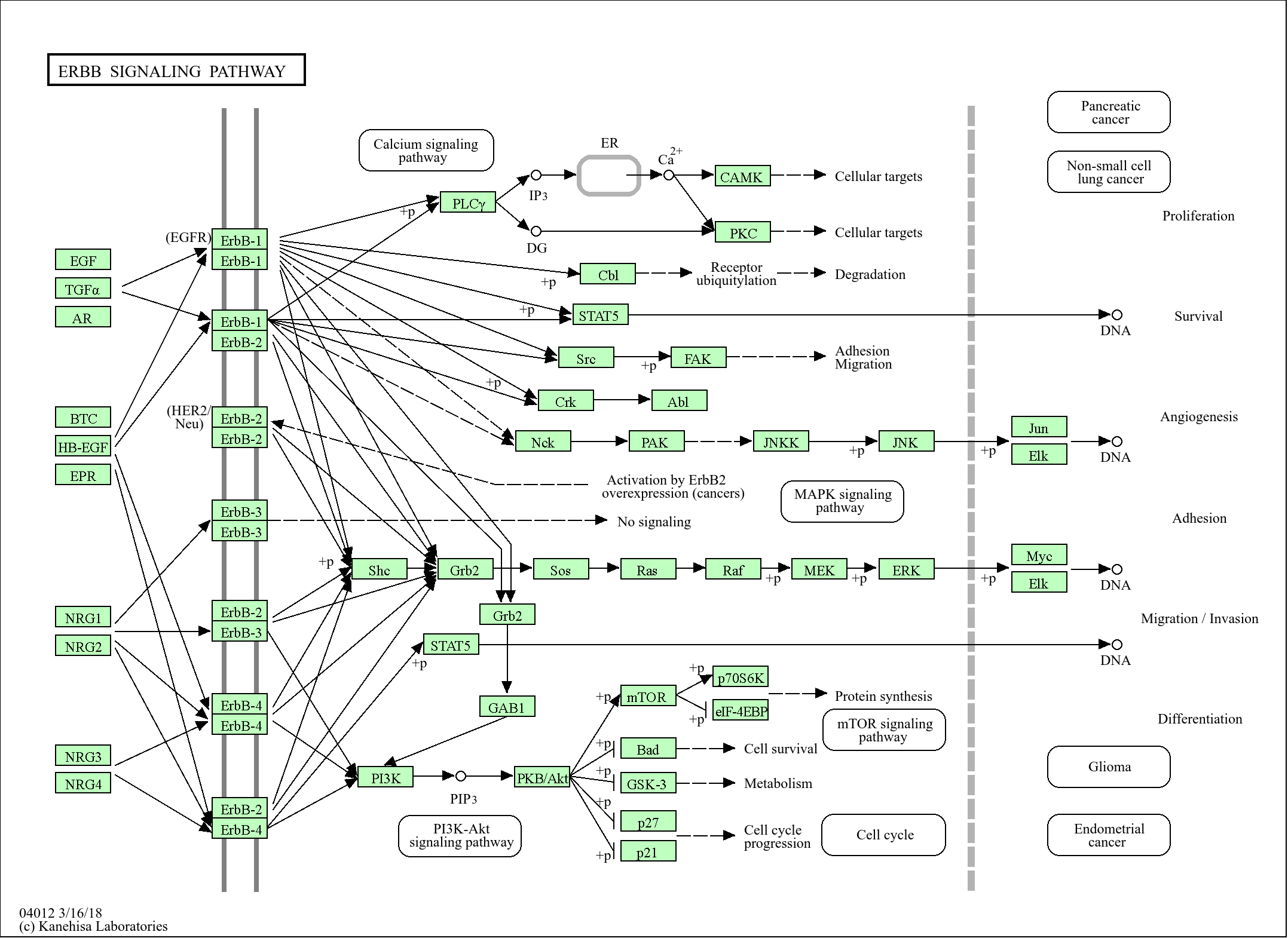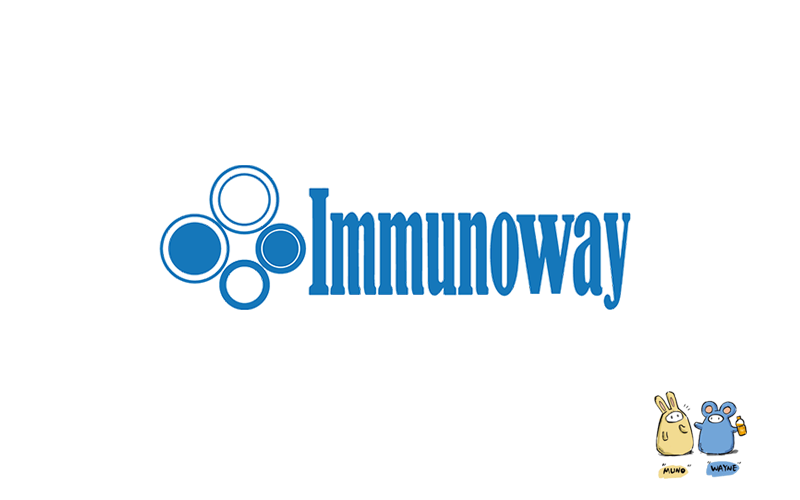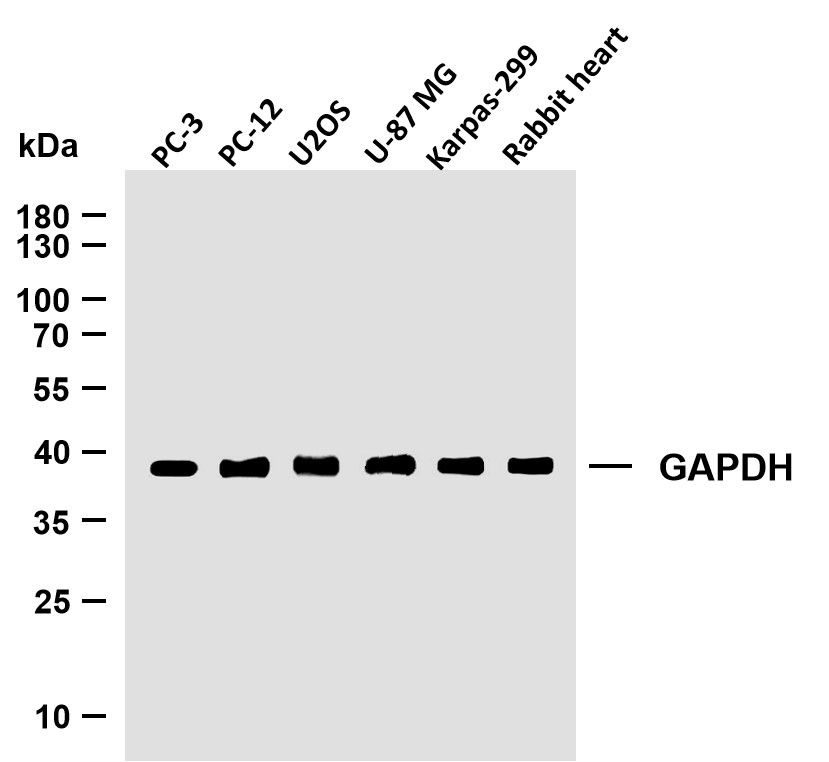
Catalog: YN0235
Size
Price
Status
Qty.
200μL
$450.00
In stock
0
100μL
$280.00
In stock
0
40μL
$150.00
In stock
0
Add to cart


Collected


Collect
Main Information
Target
ITA11
Host Species
Rabbit
Reactivity
Human, Mouse
Applications
WB, ELISA
MW
130kD (Observed)
Conjugate/Modification
Unmodified
Detailed Information
Recommended Dilution Ratio
WB 1:500-2000; ELISA 1:5000-20000
Formulation
Liquid in PBS containing 50% glycerol,0.5% BSA and 0.02% sodium azide.
Specificity
ITA11 Polyclonal Antibody detects endogenous levels of protein.
Purification
The antibody was affinity-purified from rabbit antiserum by affinity-chromatography using epitope-specific immunogen.
Storage
-15°C to -25°C/1 year(Do not lower than -25°C)
Concentration
1 mg/ml
MW(Observed)
130kD
Modification
Unmodified
Clonality
Polyclonal
Isotype
IgG
Related Products
Antigen&Target Information
Immunogen:
Synthesized peptide derived from human protein . at AA range: 30-110
show all
Specificity:
ITA11 Polyclonal Antibody detects endogenous levels of protein.
show all
Gene Name:
ITGA11 MSTP018
show all
Protein Name:
Integrin alpha-11
show all
Background:
This gene encodes an alpha integrin. Integrins are heterodimeric integral membrane proteins composed of an alpha chain and a beta chain. This protein contains an I domain, is expressed in muscle tissue, dimerizes with beta 1 integrin in vitro, and appears to bind collagen in this form. Therefore, the protein may be involved in attaching muscle tissue to the extracellular matrix. Alternative transcriptional splice variants have been found for this gene, but their biological validity is not determined. [provided by RefSeq, Jul 2008],
show all
Function:
developmental stage:Strongly up-regulated in differentiating fetal muscle cells (in vitro).,Domain:The integrin I-domain (insert) is a VWFA domain. Integrins with I-domains do not undergo protease cleavage.,Function:Integrin alpha-11/beta-1 is a receptor for collagen.,similarity:Belongs to the integrin alpha chain family.,similarity:Contains 1 VWFA domain.,similarity:Contains 7 FG-GAP repeats.,subunit:Heterodimer of an alpha and a beta subunit. Alpha-11 associates with beta-1. Interacts with RAB21.,tissue specificity:According PubMed:10464311 highest levels in uterus and heart, intermediate levels in skeletal muscle and intermediate to low levels in pancreas, kidney and placenta. According to PubMed:10486209 also found in brain, colon, lung, small intestine, stomach, testis, salivary glands, thyroid glands and prostate. Very low levels in peripheral blood lymphocytes, fetal brain and fetal liver.,
show all
Cellular Localization:
Membrane; Single-pass type I membrane protein.
show all
Tissue Expression:
According to PubMed:10464311, highest levels of expression in uterus and heart, intermediate levels in skeletal muscle and intermediate to low levels in pancreas, kidney and placenta. According to PubMed:10486209, also found in brain, colon, lung, small intestine, stomach, testis, salivary glands, thyroid glands and prostate. Very low levels in peripheral blood lymphocytes, fetal brain and fetal liver.
show all
Research Areas:
>>PI3K-Akt signaling pathway ;
>>Focal adhesion ;
>>ECM-receptor interaction ;
>>Regulation of actin cytoskeleton ;
>>Human papillomavirus infection ;
>>Hypertrophic cardiomyopathy ;
>>Arrhythmogenic right ventricular cardiomyopathy ;
>>Dilated cardiomyopathy
>>Focal adhesion ;
>>ECM-receptor interaction ;
>>Regulation of actin cytoskeleton ;
>>Human papillomavirus infection ;
>>Hypertrophic cardiomyopathy ;
>>Arrhythmogenic right ventricular cardiomyopathy ;
>>Dilated cardiomyopathy
show all
Signaling Pathway
Cellular Processes >> Cellular community - eukaryotes >> Focal adhesion
Cellular Processes >> Cell motility >> Regulation of actin cytoskeleton
Environmental Information Processing >> Signal transduction >> PI3K-Akt signaling pathway
Environmental Information Processing >> Signaling molecules and interaction >> ECM-receptor interaction
Reference Citation({{totalcount}})
Catalog: YN0235
Size
Price
Status
Qty.
200μL
$450.00
In stock
0
100μL
$280.00
In stock
0
40μL
$150.00
In stock
0
Add to cart


Collected


Collect
Recently Viewed Products
Clear allPRODUCTS
CUSTOMIZED
ABOUT US
Toggle night Mode
{{pinfoXq.title || ''}}
Catalog: {{pinfoXq.catalog || ''}}
Filter:
All
{{item.name}}
{{pinfo.title}}
-{{pinfo.catalog}}
Main Information
Target
{{pinfo.target}}
Reactivity
{{pinfo.react}}
Applications
{{pinfo.applicat}}
Conjugate/Modification
{{pinfo.coupling}}/{{pinfo.modific}}
MW (kDa)
{{pinfo.mwcalc}}
Host Species
{{pinfo.hostspec}}
Isotype
{{pinfo.isotype}}
Product {{index}}/{{pcount}}
Prev
Next
{{pvTitle}}
Scroll wheel zooms the picture
{{pvDescr}}



















